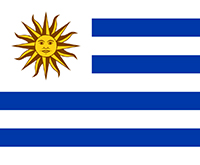Pointing At Canopus was composed by Arif Mirbaghi and edited by Michelle Macklem and Jess Shane. It was made with the voices of over a dozen friends. Special thanks to Michael Eckert for his pedal steel improvisation and Parva Karkhaneh for her patient guidance.
The tortoise, you know, carries his house on his back. No matter how hard he tries, he cannot leave home. – The Anvār-i Suhaylī or Lights of Canopus
Arif writes:
Pointing At Canopus is a meditation on the nature of home, not in the brick-and-mortar sense, but the broader idea: a place of rest. Children of immigrants often separately compartmentalize these ideas. Home is a place we live but heritage is a space we occupy. There is a daily pivot between the cadences of interaction with our family and those of our friends or co-workers. Inevitably the lines blur, and as individuals we find ourselves on different points along a gradient.
Coming to Iran reversed this pivot for me. The language of my home life suddenly spilled out in the streets, flooded my conversations, my day to day. For the first time I was utilizing Farsi beyond the comfort of my family home— I became a Farsi speaker.
At the same time, English became a place of thoughtful saudade. I would be lulled to sleep by audiobooks. The meter and ornamentation of the language felt familiar but distant like a kind of reverb— I became an English listener.
Pointing At Canopus explores the waxing and waning of home and heritage. I hope to evoke in listeners a sense of transit. A feeling neither here nor there. The idea that home is the pivot, not the point. Sounds of moving vehicles. Extra-lingual umms & ahhs while a speaker connects sentences. ‘Here’ is a space, but ‘there’ is a mythology, a fable. We orbit our fables like atoms around a nucleus. Wherever we go, there we are again.
ARIF MIRBAGHI is a Canadian-born composer & arranger based in Tehran. He has performed with dozens of ensembles throughout the world, in styles varying from folk, jazz, progressive rock, and beyond. His work explores the relationship of disconnection and reconnection for communities in the diaspora. More from Arif on his Soundcloud and on Spotify.
































